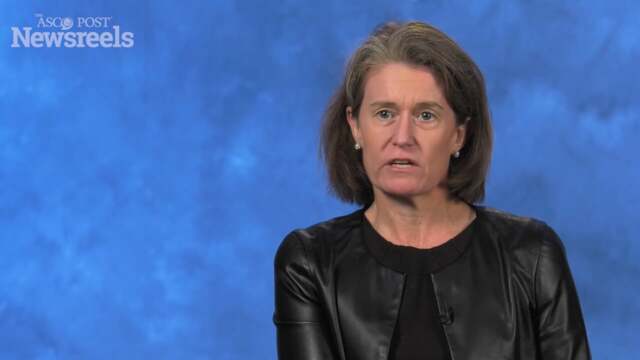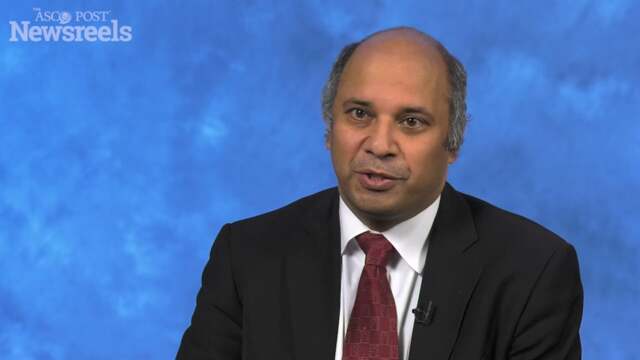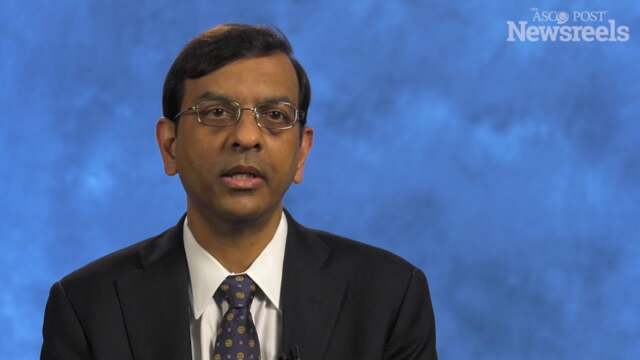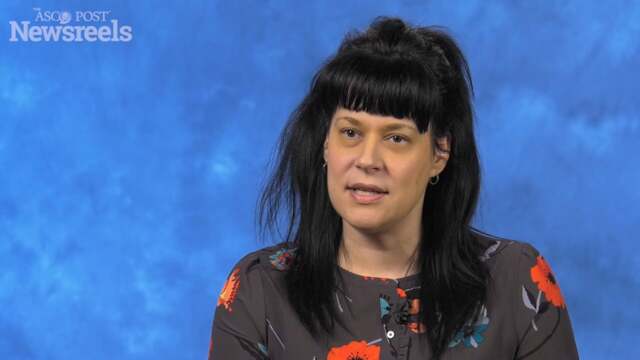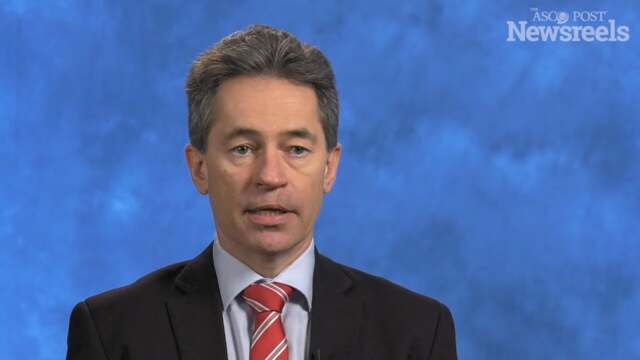Holger N. Lode, MD: Neuroblastoma Survival Update (German Language Version) 
2017 ASCO-SITC Clinical Immuno-Oncology Symposium
Holger N. Lode, MD, of the University of Greifswald, discusses in German the survival of neuroblastoma patients treated with long-term infusion of the anti-GD2 antibody ch14.18/CHO and killer-cell Ig-like receptor genotypes and Fc-receptor polymorphisms. (Abstract 111)
Elizabeth Ann Mittendorf, MD, PhD, of The University of Texas MD Anderson Cancer Center, discusses some of the top papers presented at the ASCO-SITC Symposium and how these presentations will affect clinical practice.
Shridar Ganesan, MD, PhD, of the Rutgers Cancer Institute of New Jersey, discusses mutation burden as a biomarker of response to immune checkpoint therapy in nine solid cancers.
Prasad S. Adusumilli, MD, of Memorial Sloan Kettering Cancer Center, discusses a way to promote functional persistence of CAR T cells as an ideal strategy for solid tumor immunotherapy.
Marie-Andrée Forget, PhD, of The University of Texas MD Anderson Cancer Center, discusses study findings on the impact of checkpoint blockade prior to adoptive cell therapy using tumor-infiltrating lymphocytes for metastatic melanoma. (Abstract 138)
Holger N. Lode, MD, of the University of Greifswald, discusses the survival of neuroblastoma patients treated with long-term infusion of the anti-GD2 antibody ch14.18/CHO and killer-cell Ig-like receptor genotypes and Fc-receptor polymorphisms. (Abstract 111)

